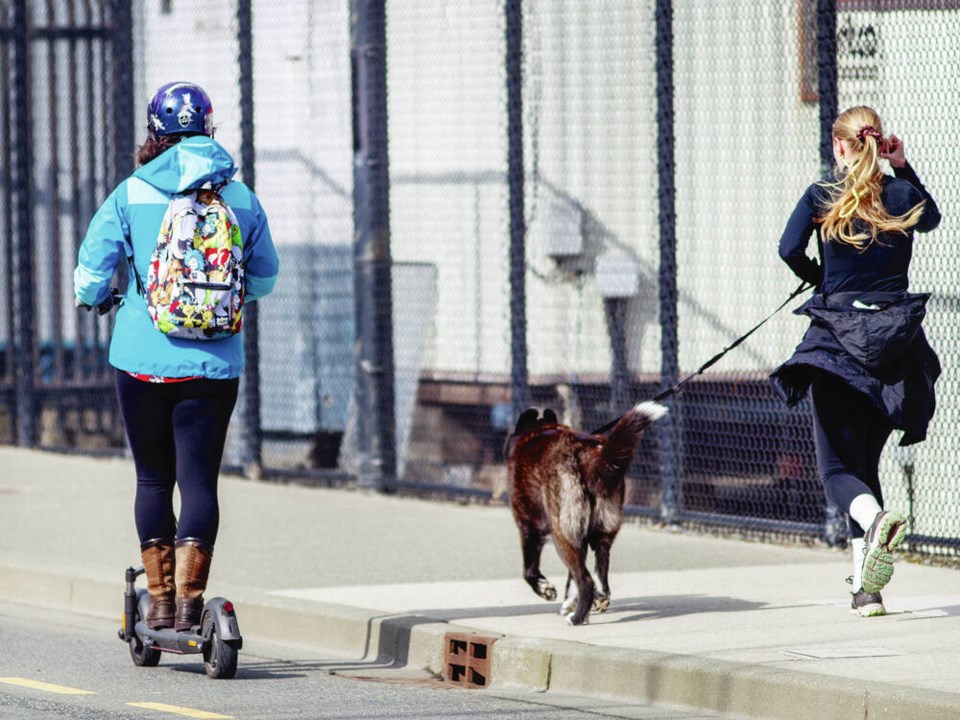Electric kick scooters can legally travel on Victoria’s bike lanes and lower-speed roads after the city decided to join a provincial pilot program.
The program is part of an effort to determine how the scooters can be authorized for legal use under B.C.’s Motor Vehicle Act.
Council voted unanimously to join the program, which has been running since 2021.
“This makes sense. We’ve seen a growth in the use of e-kick scooters of course and an explosion of different micro-mobility device types in our streets and on our sidewalks and in our bike and roll lanes,” said Coun. Dave Thompson.
“I would expect those trends to continue as the battery technology gets better and as we continue to grow our AAA [all ages and abilities] protected bike and roll lane network.”
The original pilot program was supposed to run for three years to test the use of e-kick scooters, which are battery-powered devices with a motor and two to four wheels, a platform for standing and handlebars for steering.
Only 13 communities signed on in 2021. The lone Island city involved was Nanaimo.
Victoria opted not to join, citing the resources required — the city would have had to amend its Streets and Traffic Bylaw — lack of regional interest and the limited scope of only allowing e-kick scooters.
Victoria has been pushing the province for years to allow other micro-mobility devices, electric mobility scooters and e-wheelchairs to use biking infrastructure.
The e-kick scooter program has been extended to 2028 with new terms that are designed to reduce the administrative burden on municipalities participating. E-kick scooters, illegal in communities not involved in the program, will now be permitted in all existing bike lanes and on all streets with a speed limit of 50 km/h or lower within Victoria. Users must be over 16, wear a helmet, avoid using sidewalks and generally follow the rules for cyclists.
The police will be responsible for enforcing provincial rules. Penalties will be similar to those for cycling-related offences with most contraventions resulting in a $109 fine. Not wearing a helmet will cost a rider $29.
While he was in favour, Coun. Jeremy Caradonna said the pilot program feels a little dated.
“I take the bike lanes every single day, or every single workday, and e-kick scooters are one of many different e-devices that is out there,” he said.
Caradonna noted he and Thompson will bring a motion to council next week to have the city push the province to update the Motor Vehicle Act to allow micro mobility devices — scooters, skateboards, balance boards, mobility scooters and the like — in bike lanes.
“The reality is we’re already there. We’re playing catchup, the law and the regulations are so far behind reality.”
Coun. Matt Dell said he hoped joining the pilot program might align with expansion of the existing bike-lane network.
“I still see people riding scooters on roads with no bike lanes, which is very dangerous. It’s so nice to ride in a protected bike lane on a bike, but I imagine it’s even nicer to ride in a protected bike lane on an e-scooter where you’re not swerving in traffic,” he said.
E-kick scooters are currently allowed in Edmonton, Calgary, Fredericton, Regina and Saskatoon. Ontario and Quebec have pilot projects underway.
>>> To comment on this article, write a letter to the editor: [email protected]



